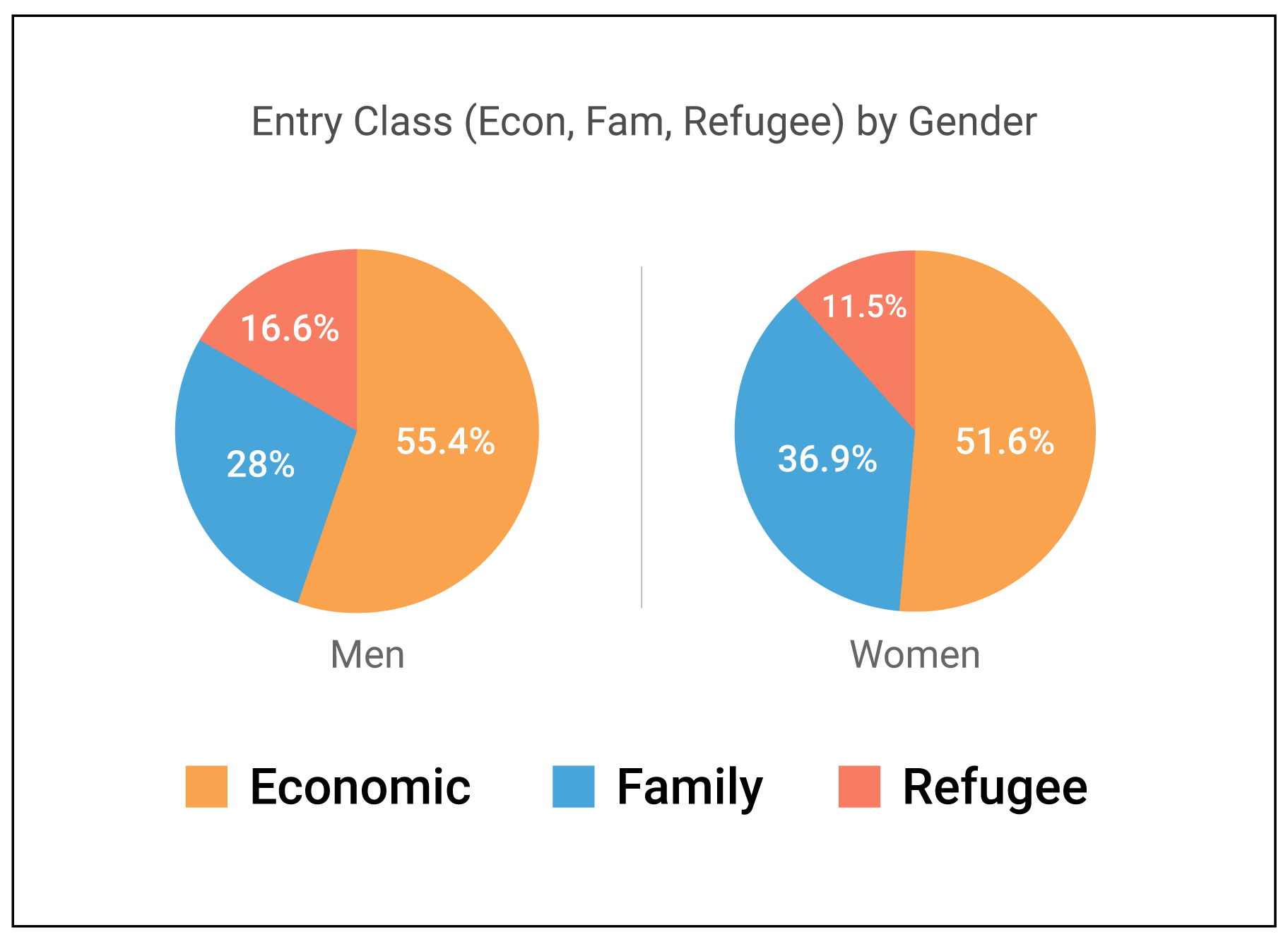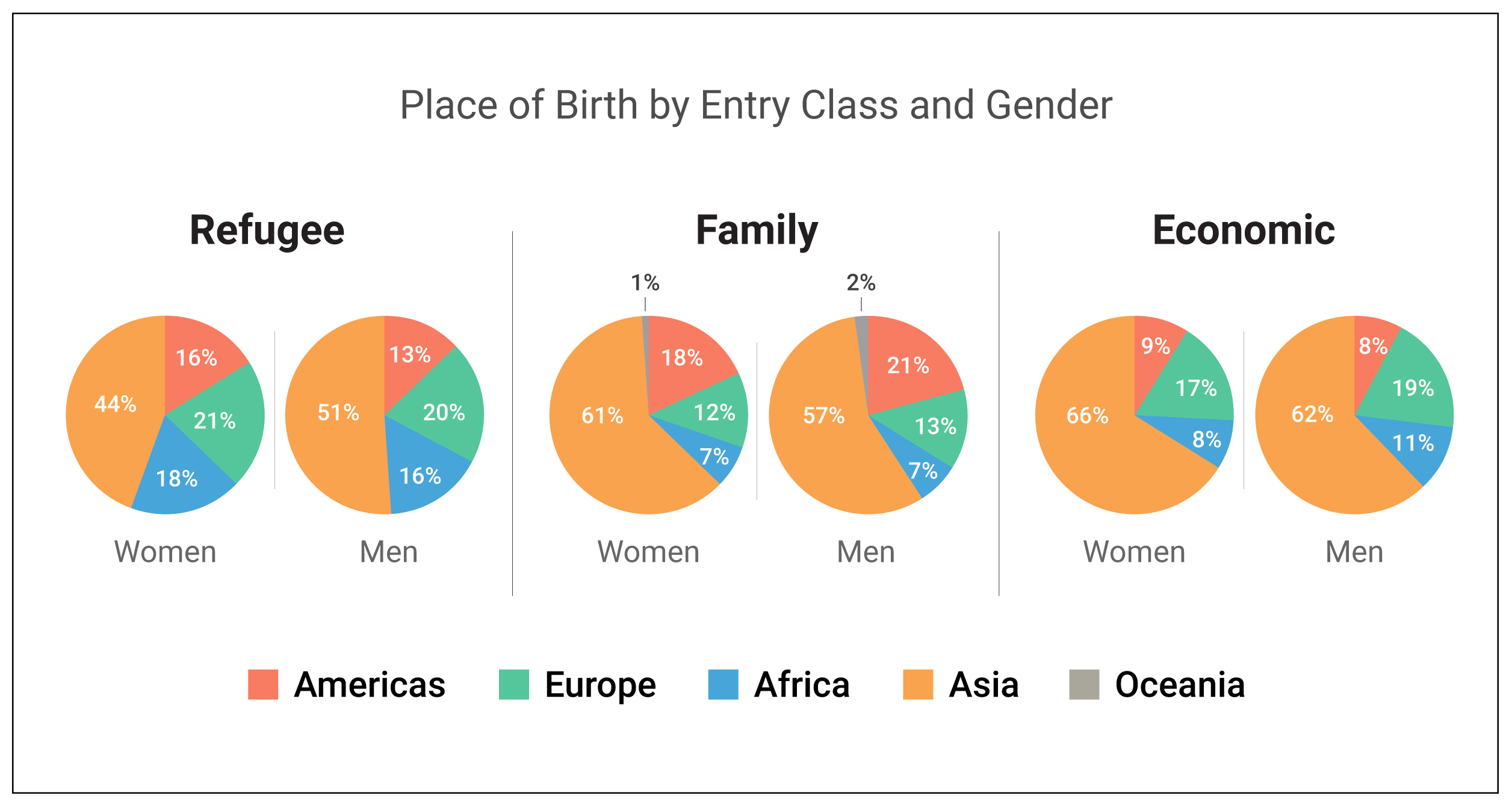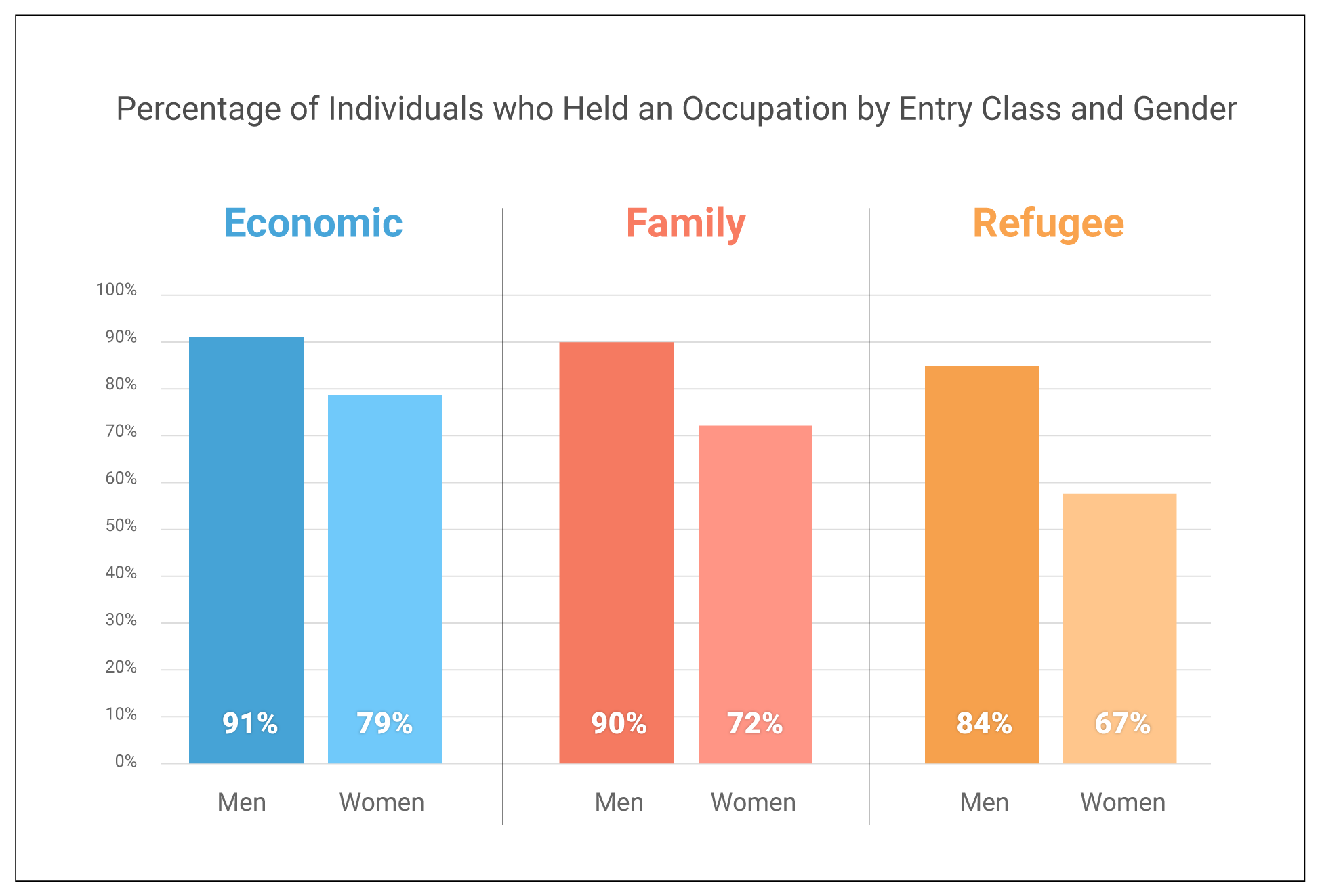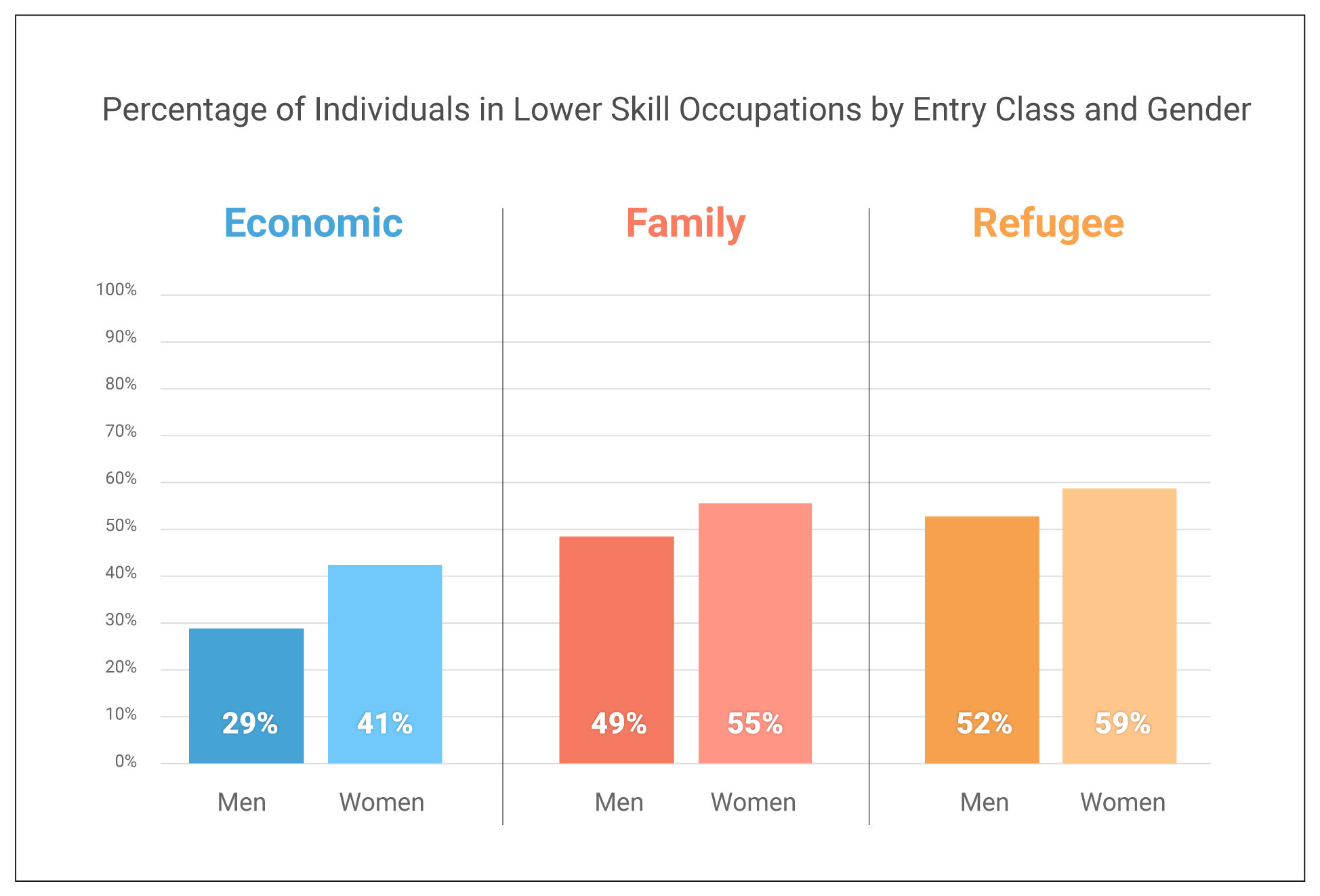The Effect of Entry Program and Gender on Economic Outcomes
Dr. Boyd and colleagues looked at entry programs and gender differences in labour market integration and economic outcomes for newcomers to Canada. The study focused on three types of humanitarian class admissions between 1980 and 2014: government-assisted refugees (GARs), privately sponsored refugees (PSRs) and migrants who apply for asylum in Canada and become protected persons in Canada (PPC). To benchmark the results of this study with early findings, immigration characteristics (region of origin, decade of admission) and economic outcomes were also compared across three main admission categories: economic immigrants, family-class immigrants, and refugees, separately for women and men.
Over half the individuals entering Canada in the three major entry classes between 1980-2014 were in the economic class. Women were slightly less likely than men to enter in the refugee class and more likely to enter in the family class. Over half the individuals entering Canada in the three major entry classes between 1980-2014 were in the economic class.


Most individuals entering through the economic and family classes were born in Asia; Asia was also a major source region for refugees. More refugees were born in Europe or Africa compared to individuals arriving through the economic or family classes.
Most privately-sponsored refugees (PSRs) came from Poland, Vietnam, Iraq, and Afghanistan.

Among the six gender-refugee entry groups studied, government-assisted refugees (GARs) have the lowest labour force participation, with female GARs the least likely to be part of the labour force.

In every immigration class (economic, family, and refugee) women are less likely to participate in Canada’s labour market than men.

In every refugee category and every admission class, more women hold low skill occupations than do men.


Refugee women have the lowest earnings of all gender-immigrant status groups.

Data on Economic Outcomes and Retention
In 2022, CYRRC partnered with the Immigrant Services Association of Nova Scotia (ISANS) and the Atlantic Region Association of Immigrant Serving Agencies (ARAISA) to host a workshop aimed at building the capacity of Service Provider Organizations (SPOs) to access and use data from the Longitudinal Immigration Database (IMDB) to answer questions about refugee retention and economic outcomes.
The workshop was facilitated by CYRRC researchers Yoko Yoshida (Western University) and Jonathan Amoyaw (Dalhousie University) in English with French interpretation.
The examples used in this workshop focus on refugee settlement in the Atlantic Region, however, the skills and tools taught can also be applied to explore broader immigration issues across Canada.
In 2021, CYRRC partnered with Western SPO umbrellas – the Alberta Association of Immigrant Serving Agencies (AAISA), Affiliation of Multicultural Societies and Service Agencies of BC (AMSSA), Manitoba Association of Newcomer Serving Organizations (MANSO), and Saskatchewan Association of Immigrant Settlement and Integration Agencies (SAISIA) – to host data workshops on the same issues but with examples and case studies from the Western Provinces.
